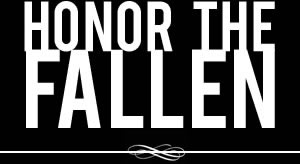
- Home
- NATO Kosovo Force
- Operation Allies Refuge
- Operation Enduring Freedom
- Operation Freedom’s Sentinel
- Operation Inherent Resolve
- Operation Iraqi Freedom
- Operation New Dawn
- Operation Octave Shield
- Operation Odyssey Lightning
- Operation Spartan Shield
- Task Force Sinai
- U.S. Africa Command Operations
- U.S. Central Command operations
- The People Behind The Sacrifice
Army Staff Sgt. James P. Hunter
Died June 18, 2010 Serving During Operation Enduring Freedom
25, of South Amherst, Ohio; assigned to Headquarters and Headquarters Company, 502nd Infantry Regiment, 2nd Brigade Combat Team, 101st Airborne Division (Air Assault), Fort Campbell, Ky.; died June 18 in Zhari district, Afghanistan, of injuries sustained when insurgents attacked his unit with an improvised explosive device
Army journalist first killed in war since 9/11
By Kristin M. Hall
The Associated Press
NASHVILLE, Tenn. — A Fort Campbell soldier killed in Afghanistan who was dedicated to telling the soldier’s story was the first Army journalist killed in combat since 9/11, military officials say.
Staff Sgt. James P. Hunter died June 18 when a patrol he was with was struck by improvised explosive device in Kandahar. The 25-year-old journalist from South Amherst, Ohio, was assigned to the Headquarters and Headquarters Company, 502nd Infantry Regiment, 2nd Brigade Combat Team, 101st Airborne Division.
Kelly DeWitt, a spokeswoman for Fort Campbell, confirmed that his death was the first within the ranks of Army journalists since the wars began. His death was not the first among all military journalists. Maj. Megan McClung, a Marine public affairs officer, was killed in 2006 in Iraq.
In Iraq and increasingly in Afghanistan, military and civilian casualties are often caused by planted explosives, which means there is no traditional front line in these wars. According to count kept by the Committee to Protect Journalists, a total of 18 journalists have been killed working in Afghanistan since Sept. 11, 2001.
Those who worked with him said Hunter was impassioned reporter and photographer who always was trying to provide a glimpse into the lives of today’s combat soldiers.
His stories ranged from detailing how the brigade trains prior to a deployment to features about accomplishments of individual soldiers. His reports from Iraq included how soldiers worked with the Sons of Iraq movement and about life returning to normal in a Baghdad neighborhood in 2008. His photographs captured curious Iraqi children following troops on patrols, and Iraqi doctors and Army medics treating Iraqis.
Maj. Larry Porter, the public affairs officer over Hunter, said in an e-mail from Afghanistan that Hunter had an impact far reaching beyond someone twice his age. Spc. Joe Padula, who also worked in the public affairs shop with Hunter, said in a eulogy that during his second deployment to Iraq, Hunter wrote, edited and designed a monthly magazine by himself.
Kimberly Warren, the editor of The Fort Campbell Courier who worked with Hunter for about three years, described him as a tireless advocate for his brigade, commonly called Strike Brigade.
“His photos were amazing,” she said. “They would bring you right there to Afghanistan or Iraq.”
And he often wanted to be where the action was: outside the safety of a military base and on operations with his fellow soldiers.
In his nearly seven years with the Army, Hunter had twice deployed to Iraq and had only been in Afghanistan a short time before he was killed along with Pfc. Benjamin Park, an infantryman from Company B, 1st Battalion, 502nd Infantry Regiment.
“The way it happened didn’t surprise me as much because that’s how I knew Staff Sergeant Hunter — to be right next to a private or someone else that was on a patrol,” she said.
But she said the news of his death was still a shock.
“It hit me like a brick wall. I never thought in my wildest dreams that a photojournalist would be killed in Afghanistan,” she said.
In addition to his own reporting and photography, he also had public affairs duties to escort and assist other media outlets that covered the brigade.
Mike Gudgell, a journalist with ABC News, was working with Hunter in southern Afghanistan at the time of his death and said he considered Hunter his colleague.
“He really felt the need to tell the story of the combat soldier,” Gudgell said.
Warren said the stories and photos from Army journalists like Hunter provide a connection to families at home, who are eager to hear about the lives of their soldiers while they are deployed.
“No family wants to be left in the dark and they want to know what their soldier is doing,” she said. “That’s our job.”
Hundreds turned out to his funeral services on June 29 in Winchester, Ky., and people lined the streets during the procession to the Lexington Cemetery. Warren said it was very inspiring to see the show of support.
“It was like everyone knew who Staff Sgt. Hunter was by the time the funeral came,” said Warren.
He is survived by his father and stepmother, Tom and Mary Ellen Hunter of Winchester; his mother and stepfather, Patricia and Rick Phillips of Birmingham, Ohio; a fiancée, Candice Clark; four brothers, Thomas Hunter, Cpl. Billy Hunter, Daniel Hunter and Timothy Hunter; a sister, Kathy Hunter; a half-sister, Navy Chief Petty Officer Charity Morgan; and two stepbrothers, Matthew and Michael Dobbs.

